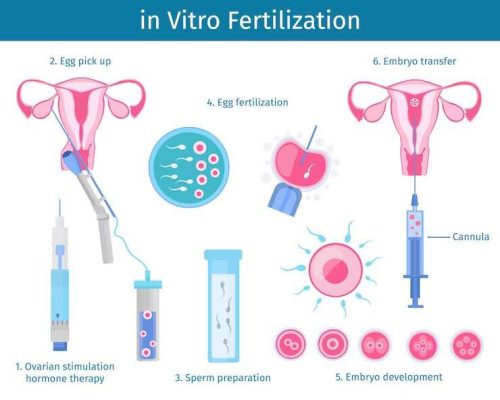Is IVF Banned in Any States?
In vitro fertilization (IVF) has been a lifeline for millions of families across the United States, turning dreams of parenthood into reality. But with recent shifts in laws and heated debates about reproductive rights, a big question looms: Is IVF banned in any states? If you’re wondering about this—or maybe even worried about your own access to fertility treatments—you’re not alone. Let’s dive into the current landscape, unpack what’s happening, and explore what it all means for you.
The State of IVF in 2025: No Bans, But Plenty of Tension
As of April 2025, IVF is not banned in any state in the U.S. That’s the good news! You can still walk into a fertility clinic in Alabama, Texas, or California and start the process if it’s right for you. But here’s the catch: just because it’s legal doesn’t mean it’s completely safe from challenges. The past few years have stirred up a storm around reproductive technologies, and IVF has found itself caught in the crosshairs of legal battles, political agendas, and ethical debates.
The turning point came in 2022 when the Supreme Court overturned Roe v. Wade, handing states the power to regulate abortion. This decision didn’t directly target IVF, but it opened the door to questions about embryos—specifically, whether they should be considered “persons” under the law. Fast forward to 2024, and an Alabama Supreme Court ruling shook things up by declaring frozen embryos “children” in a wrongful death case. Clinics in the state hit pause on IVF treatments, fearing lawsuits or prosecution. Thankfully, Alabama lawmakers quickly passed a law protecting IVF providers, and services resumed. But the ripple effects? They’re still being felt nationwide.
So, while no state has outright banned IVF, the threat of restrictions lingers like a dark cloud. Some states are pushing “personhood” laws that could complicate how IVF is practiced, and families are left wondering: Could this change overnight?
Why IVF Is Under Scrutiny
IVF isn’t just a medical procedure—it’s a lightning rod for bigger questions about life, rights, and science. To understand why it’s facing pressure, we need to look at what makes it unique. During IVF, eggs are fertilized outside the body, creating embryos. Not all of those embryos get implanted. Some are frozen for later, others are discarded if they’re not viable, and a few might be donated for research. This process has helped over 8 million babies be born worldwide since 1978, but it’s also sparked debate.
Anti-abortion groups, a powerful force in many states, argue that life begins at fertilization. For them, discarding an embryo is akin to ending a life—a stance that puts IVF in their sights. In states like Texas and Oklahoma, where abortion bans define life as starting at fertilization, the lack of clear exemptions for IVF has doctors and patients on edge. Could a prosecutor one day argue that tossing an unused embryo breaks the law? It hasn’t happened yet, but the uncertainty is real.
On the flip side, IVF enjoys broad support. A 2024 CBS News-YouGov poll found that 86% of Americans—including many who identify as “pro-life”—think IVF should stay legal. Even conservative leaders like Donald Trump have voiced support, calling it a “pro-family” option. So why the tension? It’s a clash between ideology and practicality, and families are caught in the middle.
State-by-State Breakdown: Where IVF Stands Today
Let’s take a closer look at what’s happening across the U.S. While no state bans IVF, some are closer to the edge than others. Here’s a snapshot:
Alabama: The Wake-Up Call
- What Happened: In February 2024, the Alabama Supreme Court ruled that frozen embryos are “extrauterine children” under a wrongful death statute. Clinics paused IVF, fearing legal risks.
- What’s Now: A new law passed in March 2024 shields providers from lawsuits or prosecution, and IVF is back in action.
- The Vibe: Safe for now, but the “personhood” idea still looms.
Texas: A Gray Area
- The Law: Texas bans abortion after fertilization, with no explicit mention of IVF.
- The Concern: Lawyers say it’s unlikely to affect IVF today, but the silence on embryos leaves room for interpretation.
- The Reality: Clinics are operating, but some patients are moving embryos out of state—just in case.
Oklahoma: Strict but Silent
- The Law: One of the toughest abortion bans, defining life at fertilization.
- IVF Status: No restrictions yet, but providers are watching closely.
- The Mood: Uneasy. Families and doctors want clarity.
Blue States: A Safe Haven?
- Examples: California, New York, and Illinois have laws protecting reproductive rights, including IVF.
- The Catch: Costs and access can still be barriers, even where it’s secure.
Across the board, IVF remains legal, but the patchwork of state laws creates a rollercoaster of confidence. Want to see how your state stacks up? Check this quick table:
| State | IVF Legal? | Abortion Ban? | Embryo Status Clear? | Risk Level |
|---|---|---|---|---|
| Alabama | Yes | Yes | Yes (protected) | Low (for now) |
| Texas | Yes | Yes | No | Medium |
| California | Yes | No | Yes (protected) | Very Low |
| Oklahoma | Yes | Yes | No | Medium-High |
| New York | Yes | No | Yes (protected) | Very Low |
The Hidden Costs of Uncertainty
Even without bans, the legal limbo is hitting families hard. Take Sarah Houston from Alabama, for example. After beating cervical cancer and losing her uterus, she turned to IVF with a surrogate. Her embryo transfer was days away when the 2024 ruling hit, freezing her plans. “It was heartbreaking,” she told CBS News. “We were so close, and now it feels like we’re back at square one.” Stories like hers show how uncertainty can derail dreams, even if the law eventually swings back.
Then there’s the financial side. Moving embryos to a “safer” state can cost thousands—think $1,000 to $5,000 per transfer, plus storage fees. For a process that already runs $12,000 to $25,000 per cycle, that’s a gut punch. And if clinics shut down or limit services to avoid legal risks? You’re looking at longer wait times, higher costs, and fewer options.
Quick Poll: How Do You Feel?
What’s your take on all this? Let’s make it fun—vote below and see where you stand!
- A) I’m worried IVF could be restricted where I live.
- B) I think it’s safe and won’t change anytime soon.
- C) I’m not sure, but I want to learn more!
Drop your pick in your head (or share it with a friend), and let’s keep rolling.
Three Big Issues No One’s Talking About Enough
Most articles skim the surface—legal status, political debates, done. But there’s more to this story. Here are three angles that deserve more spotlight:
1. The Emotional Toll of “What If”
Sure, IVF isn’t banned, but the threat of it is a mental load families don’t need. Imagine spending years and tens of thousands of dollars, only to wonder if your frozen embryos could become a legal battleground. A 2023 study from the American Society for Reproductive Medicine found that 1 in 4 IVF patients reported heightened anxiety post-Roe v. Wade, fearing their state might turn next. Clinics are seeing more calls from patients asking, “Should I move my embryos now?” That’s not just logistics—it’s heartbreak.
Tip: If you’re feeling this, talk to your clinic. Many offer free consults to discuss your options, like transferring embryos to a state with stronger protections.
2. The Ripple Effect on Research
IVF isn’t just about making babies—it’s a science driver. Unused embryos often go to research, helping us understand everything from genetic diseases to miscarriage prevention. But if embryos get “personhood” status, donating them could become illegal. Eleven states already ban embryo research outright, and more could follow. A 2024 Nature report warned that this could stall breakthroughs, leaving future families with fewer tools.
What You Can Do: Support groups like RESOLVE, which lobby for both IVF access and research freedom. Your voice matters!
3. The Insurance Gap
Here’s a shocker: only 20 states mandate any infertility coverage, and just 13 cover IVF fully. Legal threats could make insurers even twitchier, dropping coverage to avoid risky states. A 2025 White House executive order pushed for cheaper IVF, but without state cooperation, it’s a tough sell. If you’re in a state like Mississippi or Wyoming, you’re likely paying out of pocket—legal or not.
Hack: Look into fertility grants from nonprofits like Baby Quest. They’ve helped thousands bridge the gap.
How to Protect Your IVF Journey
Feeling overwhelmed? You don’t have to be. Here’s a step-by-step guide to keep your plans on track, no matter where you live:
- Know Your State’s Laws
Check your state’s stance on abortion and embryos. Sites like the Guttmacher Institute track this in real time—bookmark it! - Ask Your Clinic
Call your provider and ask: “What’s your plan if laws change?” Good clinics have contingency plans, like partnerships in other states. - Freeze Smart
If you’re worried, consider storing embryos in a state with solid protections (think Colorado or New Jersey). It’s pricier upfront but could save you later. - Get Loud
Join advocacy groups like Doctors for Fertility. They’re pushing lawmakers to clarify IVF’s status—your story could tip the scales. - Plan B
Have a backup—like a clinic in a nearby state. It’s not ideal, but it’s peace of mind.
✔️ Do: Stay proactive—knowledge is power.
❌ Don’t: Panic. IVF’s still here, and people are fighting for it.
What’s Next for IVF? A Peek at 2025 and Beyond
The future’s hazy, but here’s what’s brewing. On one hand, bills like the federal “Right to Build Families Act” (stalled in 2024) could lock in IVF protections nationwide. On the other, at least 16 states have floated personhood bills since 2022, per the Guttmacher Institute. If those pass, IVF could get trickier—think caps on embryo creation or bans on freezing.
Trending on X in early 2025, folks are buzzing about a potential Supreme Court case tying IVF to abortion rights. Could it settle this once and for all? Maybe. But don’t hold your breath—courts move slow, and states aren’t waiting.
Here’s a wild card: mini-IVF. It’s a lighter, cheaper version that uses fewer eggs and embryos, dodging some legal gray areas. A 2024 study in Fertility and Sterility found it’s gaining traction in states like Texas, with success rates close to traditional IVF for some patients. Could this be a workaround if restrictions tighten? Worth watching.
Quiz Time: Are You IVF-Ready?
Let’s lighten it up! Answer these quick questions to see where you stand:
- Do you know your state’s IVF laws? (Yes/No)
- Have you talked to a clinic about your options? (Yes/No)
- Are you cool with moving embryos if needed? (Yes/No)
Count your “Yes” answers:
- 3: You’re a pro—keep it up!
- 2: Solid start—dig a little deeper.
- 1 or 0: No sweat—use this guide to get rolling.
Real Stories, Real Stakes
Meet Melissa from Michigan. After years of infertility, she froze five embryos in 2021. When Roe fell, she panicked—Michigan’s old abortion ban was in limbo, and she feared IVF could be next. “I couldn’t sleep, wondering if I’d lose everything,” she told NPR. The law got struck down, but her fear stuck. She’s not alone—patients nationwide are making tough calls based on “what ifs.”
Then there’s Dr. Lora Shahine in Seattle, who’s seen a flood of patients shipping embryos from red states. “It’s not just money,” she says. “It’s the emotional weight of feeling like your family’s future is a political football.” These aren’t hypotheticals—they’re happening now.
The Bottom Line: IVF’s Here, But Stay Sharp
So, is IVF banned in any states? Nope—not today, not in April 2025. But the ground’s shifting, and what’s legal now might not be tomorrow. Whether you’re mid-cycle, just curious, or planning ahead, this isn’t a “set it and forget it” deal. Stay informed, lean on your clinic, and don’t be afraid to speak up. IVF’s a miracle worth fighting for—and trust me, plenty of people are.
Got thoughts? Share them with a friend or jot them down. This story’s still unfolding, and you’re part of it. Let’s keep the conversation going—because family, however it’s made, matters.




